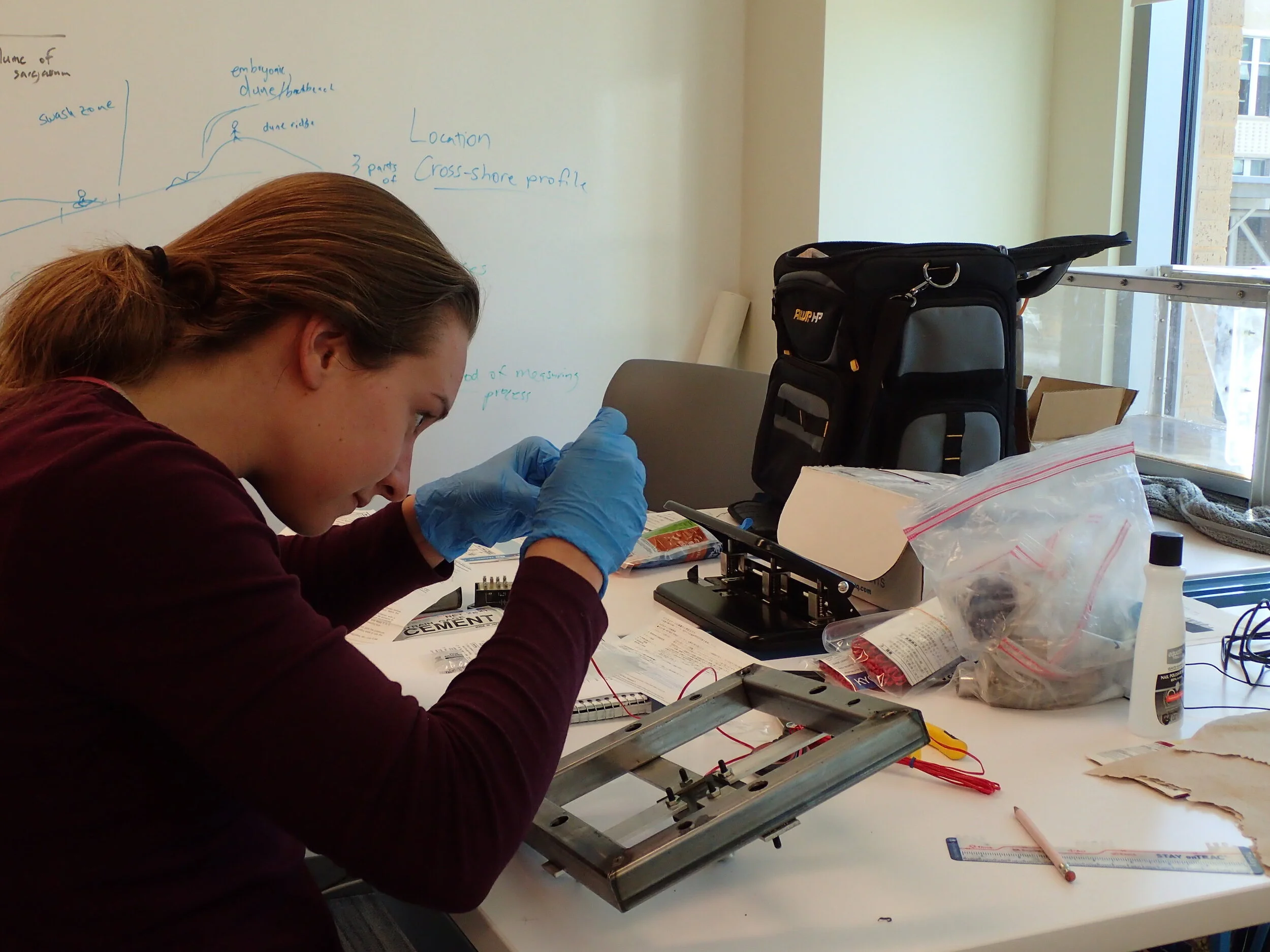Director
Dr. Rusty Feagin is a Professor in the Department of Ecology and Conservation Biology and the Department of Ocean Engineering at Texas A&M University. The central question of study in his lab is how coastal vegetation moderates and responds to erosion. His scientific work is translated into action through restoration and engineering projects that are focused on the sustainable management of coasts. Lab members often work in sand dunes, salt marshes, and beaches. He has been awarded the highest environmental honor in the State of Texas, and his work has inspired a Texas State Senate proclamation in his honor. He was recently the Robert Dean Coastal Scholar of the American Shore and Beach Preservation Association. He has over 100 publications including in Nature, Science, and PNAS. His work has been featured in the public media by NPR and The New York Times. He sat on the U.S. President’s U.S. National Greenhouse Gas Inventory, and has been a Visiting Fellow at multiple universities distributed across four countries.
Current Personnel
Dr. Thomas Huff is an Adjunct Faculty member working in the lab, but his main day job is working for the Engineering and Research Development Center of the US Army Corps of Engineers. He had earlier graduated from the lab with a PhD, focused on hydrology, spatial analysis, and wetland restoration. He later spent several years as an Assistant Research Scientist and the Manager of the lab. His skills range from welding to programming supercomputers. He formerly led several restoration efforts, and has been awarded the Texas Environmental Excellence Award.
Josh Lerner is working on a PhD, focused on patterns in ecosystem-level resistance and resilience to disturbance. He obtained his undergraduate degree from Tulane University, and then worked at the National Institutes of Health as a research fellow. He has also worked as a radio DJ in New Orleans, and likes to play music.
Former Personnel
Matthew “Jake” Madewell graduated with a MS focused on wetland sustainability and hydrology. He also later served as a research staff member in the lab. He’s now working for the Texas Water Development Board developing watershed management plans.
Sara Stearns graduated with a MS, focused on wetland and riverine restoration. She has since worked for Freese & Nichols on environmental permitting and management.
Dr. Rachel Innocenti graduated with a PhD, focused on ecosystem-based solutions to reduce beach and dune erosion. She has since worked for the US Army Corps of Engineers and is now with the US Army.
Alyssa Huddle graduated with a MS, focused on ecological engineering and natural infrastructure. She’s worked for environmental firms, as well as with the US Fish and Wildlife Service Savannah Coastal Refuges Complex.
Nate Gronewald graduated with an MS, analyzing the cultural and policy dimensions of how wetland management differs for Grus americana versus Grus japonensis. He has since been teaching at Tsukuba Gakuin University in Japan.
Dr. Meshal Abdullah graduated with a PhD, planning the ecological restoration of several hundred square kilometers in Kuwait. He has since worked at TAMU, the University of Kuwait, EcoLife Sciences, and American University in Kuwait.
Dr. Sasa Tapaneeyakul graduated with a PhD, developing a spatial model investigating the ecosystem service value of coastal lands. She has since worked at Rice University.
Dr. Audra Hinson graduated with a PhD, mapping tidal wetland carbon across the United States. She is now working for the USDA as a wetland ecologist in the Washington DC area.
Matt Sifuentes graduated with an MS, investigating the effects of sea level rise on endangered rabbits in the Florida Keys. He has since worked at TAMU and the University of Texas-San Antonio.
Ashley Wilson mapped mosquito hatch-offs in salt marshes. She has been working at the Galveston County Mosquito Control district in Texas.
Arturo Delgado graduated with an MS while conducting a study on marsh edge erosion using a Terrestrial Laser Scanner. He has since worked at the City of College Station and for the US Army.
Matthew Furman graduated with an MS looking at how dune plants reduce erosion. He has since worked at the Texas Commission for Environmental Quality in Texas.
Karla Salgado graduated with an MS looking at how dune plants reduce erosion. She has since been working at the Instituto de Ecologia, A.C. in Mexico.
Paul Costanzo graduated with an MS after evaluating Ecosystem Service Values in California wetlands. He has since worked with the US Navy in California.
Frances Toledo-Rodriguez graduated with an MS, evaluating the biodiversity of Pterocarpus officinalis forested wetlands in Puerto Rico. She has since worked at the US Fish and Wildlife Service in Massachusetts.
Dr. Ricky Colon-Rivera graduated with a PhD, identifying the effect of sea level rise on Pterocarpus officinalis wetlands and bioluminescence in Puerto Rico. He has since worked at the San Juan Bay National Estuary Program and the Departamento de Recursos Naturales y Ambientales in Puerto Rico.
Dr. Wasantha Kulawardhana graduated with a PhD after developing a remote sensing-based approach for quantifying carbon in coastal wetlands. She has since worked at Jackson State University in Mississippi.
Marie Cline graduated with an MS, mapping and predicting wetland cover change along a fault. She has since worked at the City of College Station and for the US Army.
Dr. Amy Williams graduated with an MS studying beach and dune management. She has since worked for Burlington County College, Ocean County College, Rowan College, Alliance for a Living Ocean, New Jersey Sea Grant, and Stevens Institute of Technology in New Jersey.
Mark Karnauch graduated with an MS, analyzing geospatial resources. He has since worked at AMD and General Motors in Texas.
Starr Lozada measured plants and marsh edge erosion, publishing the results in the Proceedings of the National Academies. She has since worked at the US Department of Homeland Security in Louisiana.
























